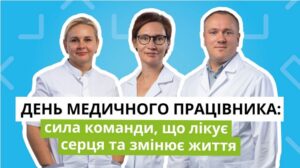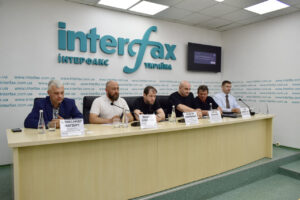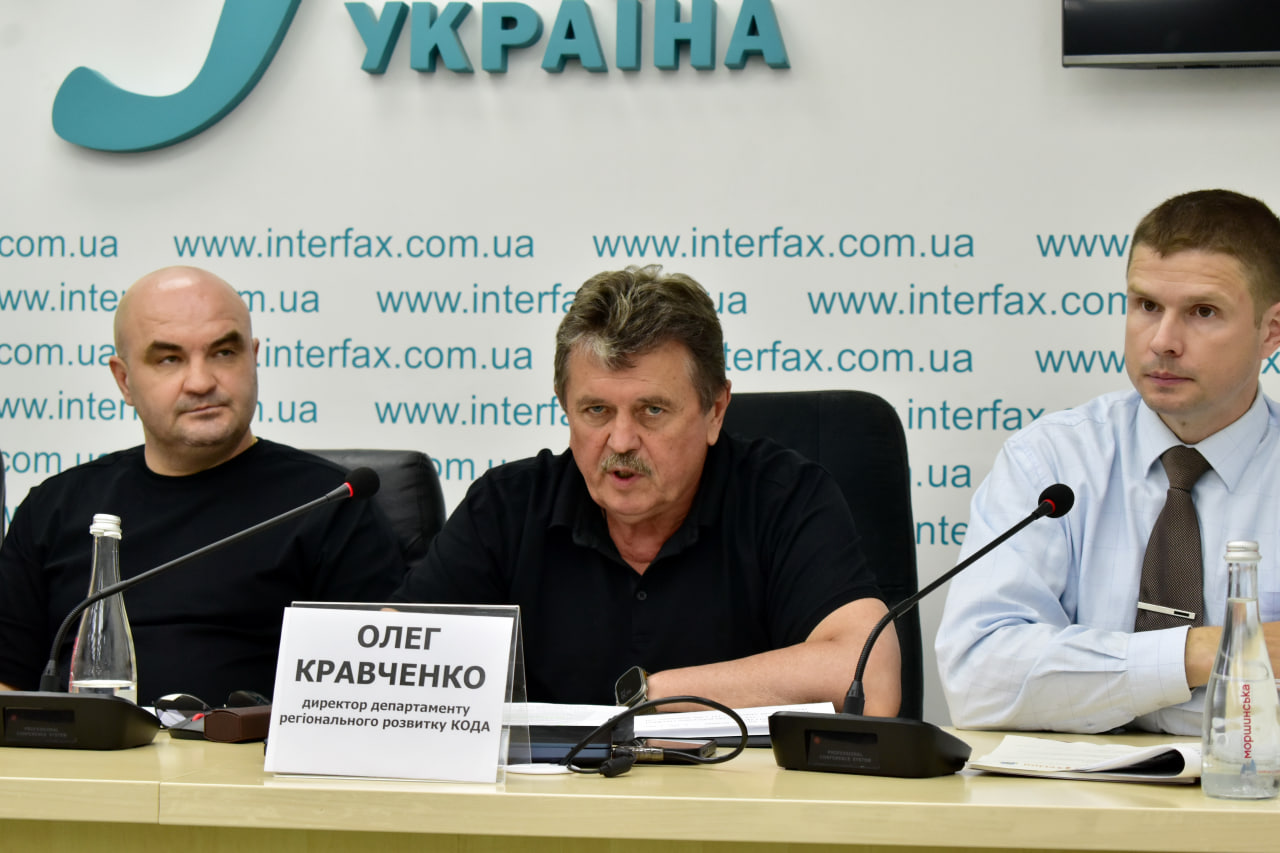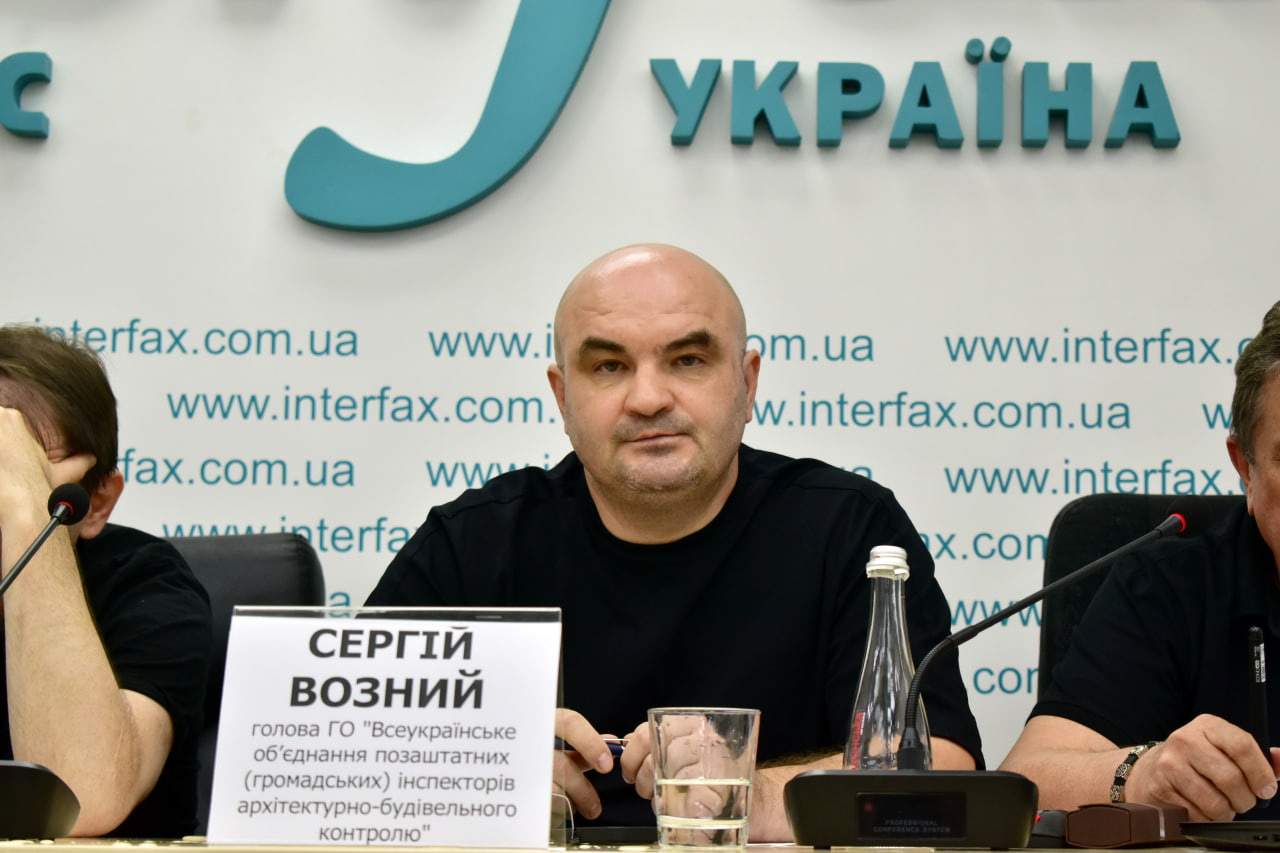
Ukraine’s real deficit to cover all military and budget expenditures, which must be covered by foreign aid in 2025-2026, is approximately equal to the 2024 figure and amounts to about $90 billion annually, according to Alexander Paraschiy, head of the analytical department at investment company Concorde Capital.
“Ukraine’s total need for external assistance, both financial and military, averages approximately $90 billion for 2024, 2025, and 2026,” he said during a discussion titled “What awaits the economy in 2025 and beyond,” organized by the Center for Economic Strategy on Friday.
Parashchiy noted that in 2024, defense and security spending amounted to approximately $95 billion, this year it is likely to increase to $100-105 billion, and in 2026, according to the new Minister of Defense Denys Shmyhal, the need could reach $120 billion.
He recalled that other state budget needs amount to approximately $42 billion, while Ukraine will be able to collect about $55 billion this year through taxes, fees, dividends, and financing from the NBU’s profits.
“That means we have a hole of about $142-55 billion, which is much more than the financial deficit figure,” the Concorde Capital analyst explained his calculations.
According to him, this need will be covered this year mainly through the EPA program (via frozen Russian assets) and the EU’s Ukraine Facility program, as well as the remainder of previously approved military aid from the United States.
“Let’s hope that the new administration (in the US) will still provide assistance under the new programs. But the biggest question now, unfortunately, is the financing of the war in 2026, because our total need for both financial and military assistance next year could reach $100 billion. And how to cover this need, unfortunately, remains a very big question,” Parashchiy concluded.
As reported, this week Ukrainian President Volodymyr Zelensky said that Ukraine needs to cover a deficit of $65 billion per year, of which $40 billion is for budget needs and $25 billion is for domestic defense production.

On July 12, Rush LLC, owner of the EVA chain in Ukraine, opened its first store of the new compact format “EVA поруч” in the village of Zazimya in the Brovarsky district of the Kyiv region, according to the company’s press service.
By the end of 2025, the chain plans to open 10 EVA Nearby stores. The next openings are already scheduled for July in the Kyiv region in the village of Sofiivska Borshchahivka (Bucha district) and in the village of Hatne (Fastiv district).
It is specified that the experimental format of the compact “EVA Nearby” store will have an average area of about 60 square meters, which is 3-4 times less than a standard EVA store.
“This format is designed to help us meet consumer needs where this was previously impossible due to a lack of space sufficient to open a regular EVA store. EVA Nearby will ensure our presence where it is important to shoppers,” said Viktor Sredniy, COO of the EVA chain.
The range will include around 2,000 SKUs (15-20,000 SKUs in full-format stores). However, the compact format will also feature unique offers with a focus on the affordable price segment. The focus of the assortment will be on household chemicals, household goods, basic childcare products, hygiene products, and body and hair care products. Decorative cosmetics and perfumes will not be available in the new format. However, the advantage of the “EVA поруч” format is that such a store will serve as a pickup point for online orders.
Investments in opening an “EVA поруч” store amount to UAH 500,000, while launching a standard EVA store costs UAH 3-5 million, depending on the design of the retail outlet, its area, and the initial condition of the premises. Each compact store creates an additional 3-4 jobs.
EVA Nearby currently has experimental status. The strategic development potential of the format will be determined by the results demonstrated, which the company plans to evaluate in 2026.
Rush LLC, which manages the EVA chain, was founded in 2002. As of early 2025, the chain had 1,109 stores in operation.
According to Opendatabot, the owner of Rus LLC is listed as Incetera Holdings Limited (Cyprus, 100%), with Ruslana Shostak and Valery Kiptika as the ultimate beneficiaries.
At the end of 2024, Rush’s revenue increased by 28.2% compared to the previous year, to UAH 27 billion. Net profit decreased by 36.7%, to UAH 1.4 billion.

Ukrtransnafta CEO Volodymyr Tsependa and Asset Recovery and Management Agency (ARMA) head Olena Duma signed an addendum to the current agreement on managing the Ukrainian section of the Samara – Western Direction” (SZN), which provides for an increase in the company’s monthly payments to the state budget from UAH 1.1 million to UAH 5 million.
“The focus is on responsible management of part of the Samara-Western Direction oil product pipeline in the new security environment of 2025,” Ukrtransnafta said on Facebook on Friday.
According to the company, the decision takes into account the updated operating conditions of the facility and is aimed at improving its efficiency.
“We view the management of this facility not only as an operational function, but as the company’s responsibility to the state to work efficiently, transparently, and results-oriented,” Tsependa said.
Ukrtransnafta emphasized that the parties had demonstrated a common position: to act proactively, ensure the continuous operation of critical infrastructure, and transparently manage state property.
As reported, the Ukrainian section of the SZN had long belonged to Prikarpatzakhidtrans LLC (Rivne), but as a result of court proceedings, it was returned to state ownership in early 2021. Ukrtransnafta won the tender for its management and in September 2021 received all the necessary documents for the operation of the Ukrainian branch of the SZN and confirmed its readiness to resume its work.
After the start of the full-scale Russian invasion, given the impossibility of resuming the operation of the oil product pipeline in the planned direction of pumping oil products from Belarus, as well as the need to ensure the state’s defense capability to meet the needs of the Armed Forces of Ukraine in wartime, Ukrtransnafta began pumping diesel fuel in reverse from Hungary to Ukraine.
Ukrtransnafta, 100% of whose shares are managed by Naftogaz of Ukraine, is the operator of the country’s oil transportation system.
In 2023, Ukrtransnafta’s net profit increased by 40% to UAH 5.6 billion. In 2024, the company paid UAH 5.29 billion in dividends to its shareholder, Naftogaz of Ukraine, based on its performance in 2023.

Sunflower production in Ukraine in 2025 will not exceed 13.6-13.7 million tons, which is only 7% higher than in 2024, according to the information and analytical agency APK-Inform.
Analysts noted that weather conditions continue to reduce the yield potential of sunflower in Ukraine, particularly in the south and east of the country, where up to 50% of the total area under this oilseed crop is concentrated. Cool weather in the spring and critically low soil moisture reserves in these regions, combined with insufficient rainfall, have created unfavorable conditions for the development of oilseed crops.
According to their information, a number of farmers report that crops are in very poor condition: uneven plant growth in the field, delayed vegetation, small heads, as a result of which decisions are being made to disc these fields and prepare for winter sowing. In a number of regions, crops suffered from high temperatures in July, and hail was also reported locally.
Experts noted that crop losses in the south and east may be offset by expected better sunflower yields in the center, as well as in the west and north, where temperatures and precipitation were more favorable.
They are convinced that a significant increase in the cost of sunflower seeds in the new season should not be expected.
“First, many factories are changing their operating strategies to avoid losses and negative margins, as in the 2024/2025 season. Second, the low cost of sunflower oil, whose trade slowed in the 2024/2025 season due to lower production. Thirdly, plants will now have an advantage in the form of export duties on soybeans and rapeseed, which may contribute to an increase in the supply of oilseeds on the domestic market,” APK-Inform concluded.

Medical professionals are extraordinary people because their profession is, above all, a calling that requires tremendous inner strength, endurance, and faith, often physical as well. This is especially true in times of war. On Medical Workers’ Day, we want to share the stories of Oxford Medical doctors, because we felt true courage and humanity in their words. These stories have become a symbol of the resilience of a large family — the largest private medical network in Ukraine.
Everyone who works with patients literally holds the front line of the nation’s health, helping Ukrainians in their most difficult moments, including:
And no matter what their specialty is, more and more often, medical professionals, in addition to their direct duties, are performing a mission that is so necessary right now — providing emotional and psychological support to people.
“If I see that a patient’s problem is not with their heart, but is caused by general stress or chronic fatigue, I will still comfort them and provide psychological support, because words penetrate the soul and ultimately heal,” says cardiologist Natalia Bakhyan.
Right now, it’s tough for everyone, so the doctor thinks that medical workers should stick together and support each other, share their experiences, and give practical advice so they don’t burn out and have the resources to keep treating people.
For its part, the management of Oxford Medical notes that it feels a great responsibility, because the largest private medical network in Ukraine must not only care for patients, but also support those who save lives every day.
“In addition to our main task of providing Ukrainians with access to quality medical care, which requires a team of highly qualified specialists, state-of-the-art equipment, innovative technologies, and high-quality service, we must take care of our employees by creating comfortable working conditions, promoting their professional development, and advancing their careers. And we must provide jobs, especially to medical professionals who have lost the most precious things in their lives — their homeland, their homes, their families, and their medical practices,” says Tetyana Sydorova, director of Oxford Medical clinics in Kyiv.
Oleksandr had everything in Mariupol — respect, achievements, and a high position: he was the medical director of a private clinic. But with the start of the full-scale war, he had to leave his homeland.
“I left the city while it was under siege in April 2022. The humanitarian corridors weren’t working, so I left under fire, taking detours. First, I got to Zaporizhzhia, then Poltava. There, I decided to seek my fortune in the capital. At the end of April, I had an interview at Oxford and have been building a new life ever since,” the doctor recounts.
Part of his family left the country, but Oleksandr made an important decision to stay: “I want to make the most of my knowledge and skills to provide medical care in Ukraine. Oxford Medical welcomed me into their family with open arms. And when I faced serious personal problems, the entire team came to my aid.”
From a gastroenterologist, Oleksandr rose to become the head of a structural unit, and now he is responsible for three units in the network and thousands of patients in Kyiv.
On February 22, Anastasia and her family left for her parents’ home in the Kherson region and found themselves under occupation just a week later. The family lived without electricity, water, or gas for two months. To escape the occupation, the Ivashchenkos had to walk 12 km to the administrative border of the Dnipropetrovsk region. They eventually settled in Kyiv.
“Leaving my parents and my hometown was extremely painful. The capital greeted us with cold weather, rain, and rockets hitting the Artem factory,” recalls the medic.
At first, Anastasia worked as a “doctor without borders,” traveling around the Kyiv region during blackouts. Then she was invited to work at Oxford Medical: “They took me without any questions, even though I was still working part-time in Kherson. Here I met colleagues who were also displaced persons — from Kherson, Bakhmut, Mariupol, Luhansk, and Donetsk regions. They were kindred spirits because they had gone through the same thing as me.”
Ms. Ivashchenko still maintains close ties with doctors from Kherson and does not abandon her fellow patients in need: “My nurse now lives in Germany. As a reminder of our friendship, I wear a gift she gave me — a brooch in the shape of a phonendoscope. And patients from Kherson still call me for help. I never turn anyone away, even if they don’t have a contract with me. I still give them consultations and advice free of charge.“
Marina worked as the head of a dermatology and venereology clinic in Bakhmut for 20 years. As a leading specialist who knew her job and could solve any problem, she was valued not only in the city but throughout the Bakhmut district.
However, due to the war, in April 2022, the doctor and her family found themselves in Kyiv. A friend offered her a job at Oxford: “It so happened that I visited the clinic on Wednesday just to get acquainted, and on Thursday I already started working! They welcomed me warmly, helped me quickly integrate into the team and get used to the new structure.“
The doctor admits: ”I fell in love with Oxford with all my heart, and I hope it’s mutual, because the company has given me a lot of trust: after a while, I was offered a similar position — head of department. So, since the fall of 2023, I have been heading a large dermatology and cosmetology department in Podil.”
Marina likes the atmosphere of the network: the attitude of the management and the friendly relations with her colleagues. And she emphasizes another big plus — Oxford always promotes the development of its employees: seminars, lectures, conferences, training — the desire for self-improvement is welcomed here.
“Right now, I am specializing in surgical dermatology. Yes, I work and study a lot, come home late at night, go on business trips — on the one hand, it’s hard, but on the other, it’s inspiring. What’s more, at Oxford, they listen to us! When I became head of the department and we started to actively develop it, the company purchased modern equipment and organized training based on our recommendations. We are trying to create something new, a new space — and the management is very supportive of this,” says the doctor.
Marina has been asked many times why she did not leave the country, since with her specialty she could have found a job anywhere. But in a family of doctors, this option was not even considered: her husband is a dermatologist working in a military hospital, and their children and parents remain in the capital: “We love Ukraine very much and want to live on our land. We hope that at least someday we will be able to see our native Bakhmut. But I am extremely grateful that Kyiv has welcomed us so warmly. It’s as if it was waiting for us to start working here fruitfully. And we have succeeded because we are not standing still, but moving forward. I am proud that at this age, my husband and I are trying to do something meaningful for medicine and for our people.“
Before moving to Kyiv and working at Oxford, Natalia worked for nine years as the head of the cardiology department in Toretsk, where she had the highest category and status of leading cardiologist. However, the decision to leave Donbas had been brewing since 2021, because her city had been in the war zone since 2014 and was constantly under shelling.
With the outbreak of full-scale war, the cardiologist had to move again: she and her family found refuge in Poltava for a while, but she continued to provide medical assistance there: “When we were all scattered across different regions, Oxford came up with a great initiative: to call our patients to find out how they were doing and at least remotely advise them on medications and how to act in emergency situations.”
Sometimes, the doctor would call people sitting in basements in Irpin or Bucha. Some people were feeling ill, so she had to tell them what pills to take, what to use as a sedative, how to lower their blood pressure or calm their arrhythmia: “Everyone thanked us for our support, even if it was from a distance, but it was important to them. And for us too, because we felt needed.“
Since 2014, Dmytro has been providing assistance to the wounded in the east as part of volunteer formations.
From the first day of the full-scale invasion, as the chief medical officer of the “Hospitaliers” battalion, he led the evacuation of the wounded in the Kyiv region and assisted the Defense Forces. After the situation in the capital stabilized, he performed his duties as a medic in the hottest areas — in Bakhmut and Vuhledar. He later joined the 59th Mobile Hospital of the Armed Forces of Ukraine and worked as a vascular surgeon in the Donetsk region.
For three years now, Dmytro has been saving the lives of his comrades and civilians in a field hospital in one of the most dangerous areas. Even on the front line, he makes every effort to advise patients in need of help.
Whenever he has days off, the doctor finds time to visit his native Oxford Medical in Podil to perform surgery or consult as a vascular surgeon.
“It is important not only to save the patient, but also to give them the opportunity to return to a full life. This is our duty and our respect for the soldiers,” he says.
“Every day, we contribute to the fight against cancer. At the same time, we need to keep our hearts warm and our heads cool so that we don’t burn out and so that past experiences and cases don’t have a negative effect in the future,” the doctor concludes.
We have given just a few examples of how strong our doctors are. So let’s be proud of everyone who saves lives, supports patients, and holds the medical front line day after day.
“Thank you to our team for their dedication and care. Thank you to our patients for their trust. Together, we are a force that heals,“ says the management of the Oxford Medical network.
Cardiologist Natalia Bakhyan explains why the work of doctors is so difficult and exhausting: ”We chose this profession and live it constantly. Even when we close our office and shut down our programs, our thoughts still return to our patients: did I do the right thing, did I understand the situation correctly, did I calculate the dosage correctly, did I choose the right medication? And this work never ends. I may not remember a patient’s name, but I will always remember the diagnosis they came to me with.”
Let’s thank the medical professionals today — the people who selflessly care for our health and lives. They need our words of support now more than ever.

On Thursday, the press center of the Interfax-Ukraine news agency hosted a meeting of the Capital Region discussion club on the topic: “Problems of rebuilding the Kyiv region: the specifics of restoring de-occupied territories, eliminating the consequences of destruction, and building housing for IDPs and veterans.”
The event was organized by the My Kyiv Region Information Agency, the Institute of Ukrainian Politics, and the All-Ukrainian Association of Freelance (Public) Inspectors of Architectural and Construction Control as part of a joint project based at the Interfax-Ukraine agency.

The participants of the discussion were Serhiy Vozny, head of the All-Ukrainian Association of Freelance (Public) Inspectors of Architectural and Construction Control, sociologist and founder of the company “Aktiv Group” Andriy Yeremenko, veteran of the Armed Forces of Ukraine, entrepreneur and leader of the Bila Tserkva Volunteer Corps Oleksandr Magdych, director of the regional development department of the Kyiv Regional State Administration Oleg Kravchenko, and deputy director of the Andriy Zasukha Charitable Foundation Vasyl Oleksyuk.
The event was moderated by Oleksiy Usachov, chairman of the board of the Institute of Ukrainian Politics. In his opening remarks, he emphasized that the purpose of the discussion club is not to criticize, but to seek solutions aimed at improving the reconstruction process, and proposed that, based on the results of the meeting, an appeal be drafted to the state authorities with relevant initiatives. In addition, Usachov called on the state leadership, the Armed Forces of Ukraine, and the negotiating teams to include Ukrainian journalist Dmytro Khilyuk, who was kidnapped in the first days of the invasion from the village of Kozarovychi and taken to Russia, on the list for exchange.

According to Oleg Kravchenko, director of the Kyiv Regional State Administration’s development department, more than 75% of the facilities destroyed as a result of the hostilities have already been restored in the Kyiv region.
– “In the Kyiv region, the restoration of damaged facilities is based on the principle of ‘better than it was’.
This is not just about returning to the previous state, but about a new level of comfort, safety, and sustainability—modern materials, energy efficiency, and inclusiveness. In particular, the communities of Borodianka, Bucha, and Slavutych are demonstrating a comprehensive approach to accessibility,” he said.
Serhiy Vozny, head of the NGO, drew attention to problems with law enforcement in the field of reconstruction.
“More than 80% of business entities involved in reconstruction are involved in criminal proceedings. There is an initiative by the Prosecutor General to close cases where there is no crime,” he said.
Ukrainian Armed Forces veteran Oleksandr Magdych stressed the need for changes to land legislation.
“Today, no military serviceman can obtain a land plot. Changes to the land code must be made urgently, because the military who defend the country have the right to land. If this does not happen, people will lose faith,” he said.
Sociologist Andriy Yeremenko pointed to a lack of transparency in the procedures for prioritizing and financing reconstruction.
“We need public accountability, public control, and real community participation. Currently, all achievements are attributed to local authorities despite corruption scandals. Without transparency, there will be no trust,” he said.
In turn, Vasyl Oleksyuk, deputy director of the Andriy Zasukha Charitable Foundation, spoke about a housing project for military personnel that has been implemented.
“Together with FC Kovalevka, we have built an inclusive cottage community for military personnel. Fifty-nine families are already living in comfortable conditions, and most importantly, the houses with land have been transferred to private ownership,” Oleksiuk said.